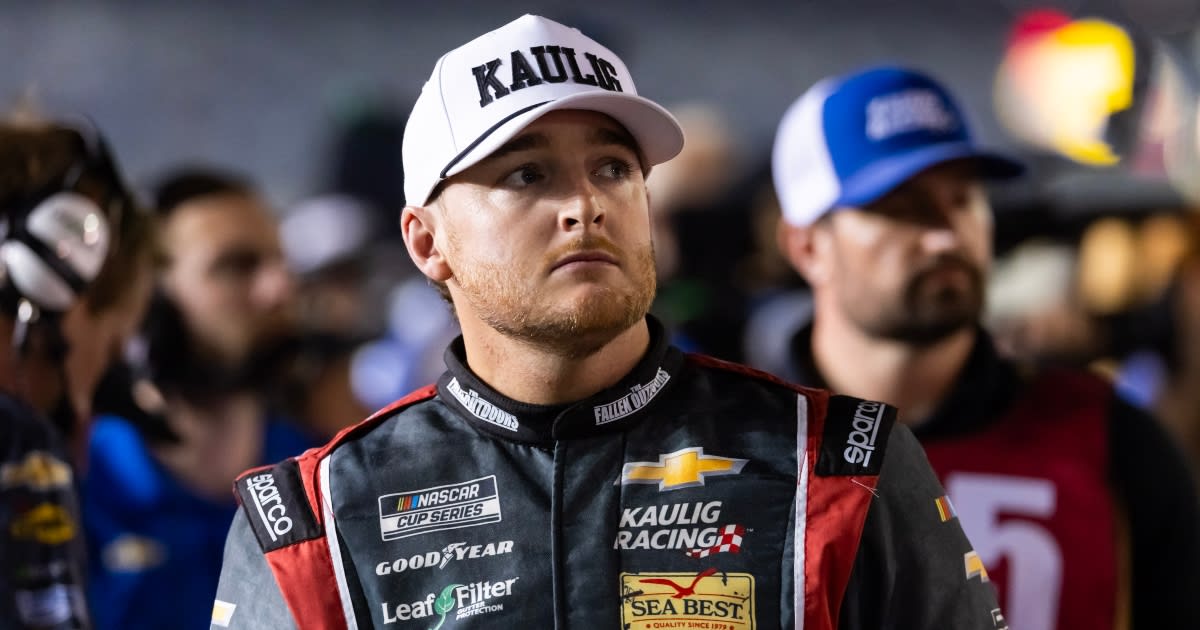Freddie Kraft and Ty Dillon React to Kyle Busch's Controversial Spotter Comments

Kyle Busch’s Controversial Take on Rearview Cameras and Spotters
Kyle Busch recently sparked a debate in the racing community when he suggested that if cars are equipped with rearview cameras, they shouldn’t have access to spotters—or vice versa. His reasoning is that combining the two technologies could be overkill, and he believes drivers should rely more on their natural communication with spotters. However, not everyone agrees with his perspective.
Some drivers and crew members argue that removing spotters in favor of cameras isn’t necessary. In fact, many see spotters as an essential part of the sport, both for safety and competitive advantage. The discussion around this topic has been gaining traction, especially after some high-profile incidents on the track.
Freddie Kraft, a spotter for Bubba Wallace, joined Ty Dillon on the Door Bumper Clear podcast to discuss the issue. Kraft expressed surprise at Busch’s comments but also acknowledged the importance of spotters. “I like the fact that he said he would pick the spotter,” Kraft said with a laugh. “Thank you, Kyle Busch. I didn’t expect that out of him.”
While Kraft was taken aback by Busch’s stance, he emphasized the critical role spotters play in the sport. Dillon, who also appeared on the podcast, shared a similar sentiment. He even went so far as to say he would prefer to eliminate rearview cameras in favor of spotters.
“I’m with Kyle. I would go with spotter,” Dillon said. “These in-car cameras, I think they’re too good. I think it’s made the blocking ridiculous. I grew up dirt racing, so we had nothing. We don’t want to go that far. I think spotting, having a spotter and no mirrors would be the way I would go for sure.”
Safety Over Competition
The conversation around spotters isn’t just about competition—it’s fundamentally about safety. Both Kraft and Dillon stressed that the primary responsibility of a spotter is to keep drivers safe. While the role has evolved to include more competitive elements, their original purpose was to prevent accidents.
“Our job first and foremost is safety,” Kraft explained. “We have definitely gone way more into the competition side, but first and foremost our job is — why we became mandatory — is for safety.”
Kraft pointed to a recent incident involving Brad Keselowski, where he spun out and was hit again moments later. “I just think that for safety purposes you should always have one,” he added.
Dillon echoed these concerns, citing issues at Chicago where spotters were either absent or ineffective. He described an instance where a driver ended up in the middle of the track for two laps without anyone noticing.
“And recently enough, Chicago, there was somebody sitting in the middle of the track for two laps,” Dillon explained. “We didn’t have spotters down there, had no clue he was there. A guy like Will Brown comes all the way from Australia, puts a lot of money into this thing. We have that big pile-up, they didn’t have a spotter down there. Runs right into it. And the spotter stand was behind a tree, you guys couldn’t see anything as is.”
The Risks of Eliminating Spotters
Dillon went on to describe several instances where the absence of spotters led to dangerous situations. “There was three to four instances where we didn’t have spotters in an area, there was cars sitting broadside, driver side, and luckily nobody got hurt in those situations. It was because we didn’t have spotters. To me, you’ve got to have them.”
The debate over whether to replace spotters with technology continues to evolve. While some drivers, like Kyle Busch, believe that modern tools can reduce the need for traditional spotters, others argue that human judgment and real-time awareness are irreplaceable. As the sport moves forward, finding a balance between technology and human oversight will remain a key challenge.